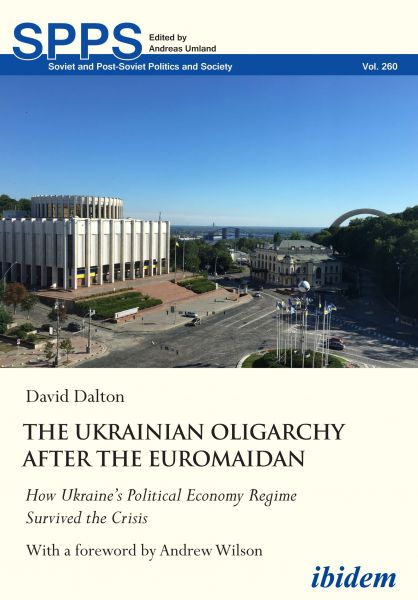The Ukrainian Oligarchy After the Euromaidan
How Ukraine’s Political Economy Regime Survived the Crisis
How did the Ukrainian oligarchy survive the institutional disruption of the Euromaidan revolt of 2013/2014? How did it manage to continue its extractive political and economic practices, amid deep changes in Ukraine’s society and polity? To answer these questions, this book analyzes the evolution of the Ukrainian super-rich in 2006-2017, tracing the process of conversion of wealth into political influence through vote-buying in the Verkhovna Rada (the Ukrainian parliament) and of the transformation of political influence back into wealth via elite rent-extraction schemes within the Ukrainian gas sector. A key argument is that continuity in informal practices between the Yanukovych and Poroshenko presidencies, and of the networks that conduct them, meant a prolongation of the dominant political economy regime. The study conceptualizes the processes of the recreation of Ukrainian oligarchy as a “currency flow,” or circuit, of wealth and power. It adds to the literature on the dynamics of informally dominated post-communist political economy regimes a detailed, integrated, and internally comparative case study of Ukraine.
"This book is ambitious in its scope ... a thoroughgoing empirical study of one of the defining features of politics in Ukraine.”
—Dr Sarah Whitmore, Senior Lecturer in Politics, Oxford Brookes University
"A successful attempt to combine usage of theories of oligarchy and national prosperity."
—Dr Rasmus Nilsson, Lecturer in Russian Politics, SSEES, University College London
This book “is ambitious in its scope, seeking to tie together the perpetuation of the oligarchy to Ukraine’s sustained economic underperformance by way of a thoroughgoing empirical study of one of the defining features of politics in Ukraine”.
—Dr Sarah Whitmore, Senior Lecturer in Politics, Oxford Brookes University.
It is a “successful attempt to combine usage of theories of oligarchy and national prosperity, which also links with the author’s avowed normative focus on the problem of insufficient wealth generation”.
—Dr Rasmus Nilsson, Lecturer in Russian Politics, SSEES, University College London.
This book traces the conversion of wealth into political influence through vote-buying and of the transformation of political influence back into wealth.
Versandkostenfreie Lieferung! (eBook-Download)
Als Sofort-Download verfügbar
- Artikel-Nr.: SW9783838277400450914
- Artikelnummer SW9783838277400450914
-
Autor
David Dalton
- Mit Andreas Umland, Andrew Wilson
- Wasserzeichen ja
- Verlag ibidem
- Seitenzahl 234
- Veröffentlichung 27.02.2023
- Barrierefreiheit
- Eindeutige logische Lesereihenfolge wird eingehalten
- Seitenzahlen entsprechen Printausgabe
- Verlagskontakt für Fragen: cs@ibidem.eu
- ISBN 9783838297668
- Mit Andreas Umland, Andrew Wilson

